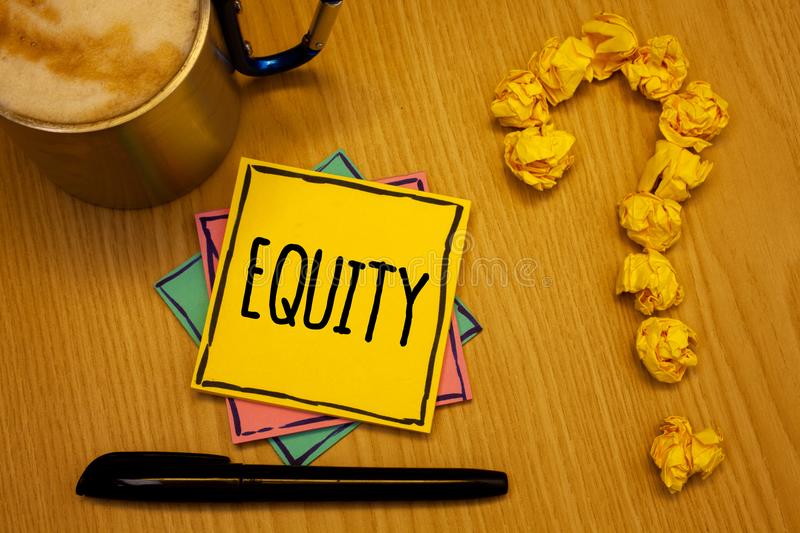Let Your Money Earn
- info@finoda.in
- +91 9035 29 4343
Equity is the amount of capital invested or owned by the owner of a company. The equity is evaluated by the difference between liabilities and assets recorded on the balance sheet of a company. The worthiness of equity is based on the present share price or a value regulated by the valuation professionals or investors. This account is also known as owners or stockholders or shareholders equity.
Equity Formula: The accounting equation is Assets – Liabilities = Equity


The market value of Equity is the total market value of all the outstanding stocks of a company. Here, the outstanding stock/share are the shares that are owned by the shareholders, investors, etc., of a company. Equity refers to the assets of a company after the liabilities are paid. It is also known as Market Capitalization. Therefore, the market value of equity is continuously changing as the two inputs(outstanding stock and market value) keeps on changing. In a company, the market value of equity is different from the book value of Equity, as the book value doesn’t evaluate the company’s future potential growth. Market Value of Equity is evaluated by multiplying the current market price per stock by the total number of the organisation’s outstanding stocks.
In accounting, equity is listed in its book value and calculated by the financial statement record and the balance sheet equation. The equation used to evaluate book value is Equity = Assets – Liabilities. Though the assets are the sum-up of all the company’s both non-current and current assets. Other details incorporated in the main account assets are fixed assets, cash, inventory, accounts receivable, property plant, intangible assets, etc.
Similar, the liabilities are sum up of current and non-current liabilities on the balance sheet. Other accounts are short-term debt, credit, deferred revenue, accounts payable, long-term debt, fixed financial commitment and capital leases.
In finance, equity is indicated as market value, which might be significantly lower or higher than the book value. The difference is because the accounting statement is looking at the past (past expenditures), while financial statement is looking ahead and forecast what the financial status of a company be.
For a public traded company, the market value of its equity is calculated as Market Value= Share Price X Shares Outstanding. Whereas, for a private company to analyse the market value an investment bankers, boutique valuati
Futures and options are the major types of stock derivatives trading in a share market. These are contracts signed by two parties for trading a stock asset at a predetermined price on a later date. Such contracts try to hedge market risks involved in stock market trading by locking in the price beforehand.
Future and options in the share market are contracts which derive their price from an underlying asset (known as underlying), such as shares, stock market indices, commodities, ETFs, and more.


Depending on the context, the word “cash equity” can be used to signify a variety of things.
In finance and investing, equity cash refers to common stocks. Cash equity in real estate refers to the sum of money a person has contributed as a down payment on their home.
In general, the term “cash equity” may also refer to the portion of an asset or investment that is easily converted into cash. In investing, it refers to the common stock that’s issued to the public and could also refer to the institutional trading of such shares. No matter what context it is used, cash equity is an essential concept to understand.
In general, the portion of an investment that may be quickly converted to cash is known as cash equity.
Cash equity segment trading in the capital market refers to stock or equity trading by big financial organizations on stock exchanges. These corporations use their capital to trade shares. Additionally, they execute trades on their behalf and that of institutional clients and individual investors.
As an illustration, let’s say the XYZ brokerage company purchases 10 lakh shares of “ABC Company”. This XYZ brokerage company invests its money for cash equity trading..
Similarly, XYZ brokerage company may execute trades on behalf of substantial institutional clients like mutual funds and individual investors for cash equity trading.

Futures and options are the major types of stock derivatives trading in a share market. These are contracts signed by two parties for trading a stock asset at a predetermined price on a later date. Such contracts try to hedge market risks involved in stock market trading by locking in the price beforehand.
Future and options in the share market are contracts which derive their price from an underlying asset (known as underlying), such as shares, stock market indices, commodities, ETFs, and more.